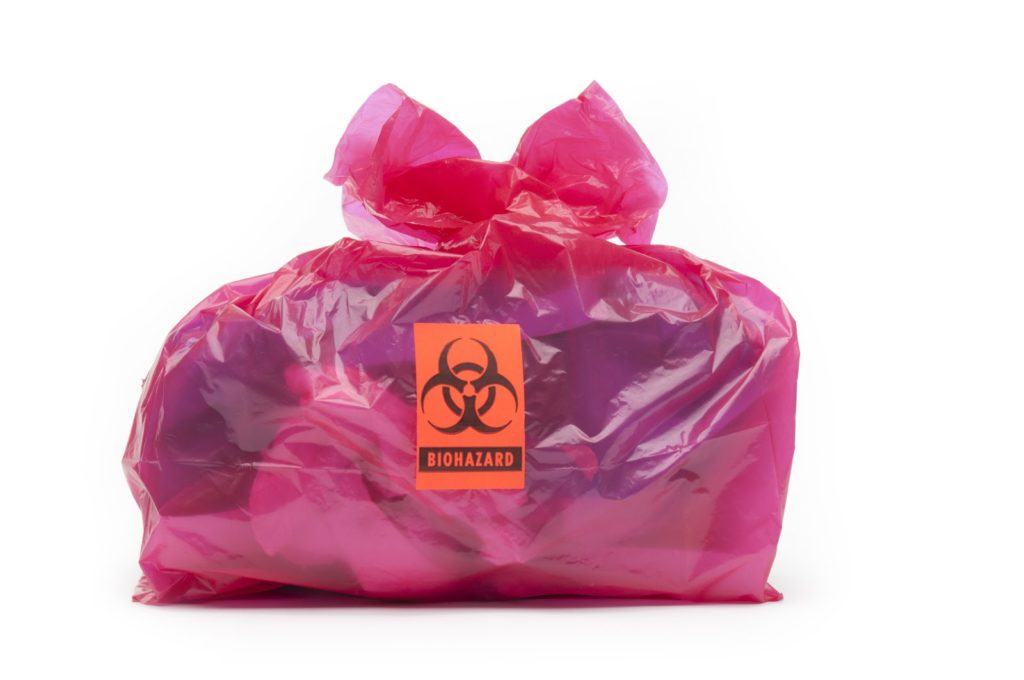Specialist Solutions for Health: Unveiling the Medical Waste Removal Service Benefit
Specialist Solutions for Health: Unveiling the Medical Waste Removal Service Benefit
Blog Article
Exploring Different Waste Disposal Options for a Cleanser Setting
In the pursuit of a cleaner setting, the management of waste disposal has actually arised as a crucial focal point for lasting advancement. With a wide variety of waste disposal choices offered, varying from traditional land fill techniques to cutting-edge waste-to-energy innovations, the option of how we manage our waste has far-reaching implications for our earth's health. By analyzing the various approaches and strategies utilized in recycling, composting, incineration, landfill management, and waste-to-energy processes, a deeper understanding of their effects and efficiency can be acquired. The mission for optimum waste disposal techniques that prioritize environmental preservation while satisfying the demands of a growing populace stays a pressing issue in today's globe.
Recycling Approaches
Executing effective reusing techniques is important in decreasing waste and promoting sustainability in our environment. Reusing entails the procedure of converting waste materials into multiple-use items to protect against unnecessary disposal. Among one of the most usual recycling techniques is material recovery, where materials like paper, glass, plastic, and metal are collected, sorted, and processed to create new products. This process not just saves all-natural resources but also decreases energy consumption and greenhouse gas exhausts related to generating new materials from square one.
An additional essential recycling method is composting, which involves disintegrating natural waste like food scraps and lawn trimmings right into nutrient-rich dirt. This process not only diverts natural waste from landfills yet likewise creates a useful source for horticulture and farming. In addition, upcycling is an innovative recycling method that entails transforming old or thrown out materials into products of better or value. By incorporating these numerous recycling techniques right into our waste management techniques, we can dramatically lower our environmental impact and relocate towards a much more sustainable future.

Composting Methods
Effective waste monitoring practices, such as reusing techniques, lead the way for a cleaner atmosphere, and currently, moving the focus to 'Composting Techniques', we discover sustainable ways to decompose organic waste for environmental advantage. medical waste removal near me.
Composting is a natural procedure that transforms organic waste, like food scraps and yard trimmings, into a nutrient-rich soil change. The trick to effective composting depends on developing the appropriate equilibrium of eco-friendly materials, such as fruit and veggie scraps, and brownish materials, like dried out fallen leaves and branches. These materials decay with the aid of bacteria, damaging down the waste into important compost.
There are numerous composting strategies offered to match various demands. Typical yard composting includes layering organic materials in a container or pile and regularly turning the blend to aerate it. Vermicomposting, on the various other hand, uses worms to damage down natural matter right into compost (click here). For those with limited space, interior composting systems give a hassle-free remedy. By making use of composting methods, we can decrease the amount of waste sent out to landfills while producing a valuable product for improving dirt and sustaining plant development.
Incineration Advantages And Disadvantages
Incineration, as a waste disposal technique, provides both advantages and drawbacks that warrant careful factor to consider in the world of sustainable waste monitoring methods. On the positive side, incineration can dramatically reduce the quantity of waste, reducing the need for land fill room and potentially lowering greenhouse gas emissions.
In addition, the high initial financial investment and operational costs of incineration centers present financial challenges, making it a much less cost-effective alternative compared to other waste monitoring methods. Careful surveillance and policy are crucial to alleviate these adverse impacts and take full advantage of the benefits of incineration as component of a thorough waste management approach.
Garbage Dump Monitoring Approaches
Landfills play a vital role in waste monitoring and ecological conservation by giving a containment system for the disposal of strong waste materials. Efficient landfill administration methods are vital to mitigate ecological effects and make sure the long-lasting sustainability of these waste disposal websites. One key technique appertains waste compaction to take full advantage of making use of offered space within the land fill (click here). By compacting the waste, the quantity is decreased, enabling even more waste to be fit in time.
In addition, the implementation of daily cover practices is essential in lessening smells, avoiding clutter, and decreasing the tourist attraction of pests. Treatment the disposed waste at the end of every day aids to have odors and protect against possible ecological contamination. Furthermore, the tracking of garbage dump gas exhausts and leachate degrees is important in making certain that environmental requirements are met and that any prospective dangers to surrounding environments are reduced.

Waste-to-Energy Technologies
Among the ingenious methods to waste management entails taking advantage of Waste-to-Energy technologies to transform solid waste right into functional energy sources. Waste-to-Energy (WtE) modern technologies include a range of processes that aim to remove power from waste products through thermal, chemical, or organic ways. This conversion process not just reduces the volume of waste that ends up in land fills however likewise generates useful power resources such as power, warmth, or biofuels.
Incineration includes melting waste at high temperatures to produce warmth and power. Gasification transforms waste right into a syngas, which can be made use of for power generation or chemical production.
Executing Waste-to-Energy technologies can aid minimize environmental issues connected with typical waste disposal methods while simultaneously offering a renewable resource source. Cautious consideration must be provided to exhausts control and guaranteeing this link the sustainability of feedstock supplies for these innovations to be truly advantageous for a cleaner setting.

Conclusion
Finally, checking out different garbage disposal options such as reusing, composting, incineration, landfill management, and waste-to-energy technologies is vital for promoting a cleaner environment - click here. Each approach has its very own advantages and difficulties, but by utilizing a combination of these strategies, we can function towards decreasing the quantity of waste that winds up in land fills and eventually add to a more lasting future for generations to come
With a plethora of waste disposal options offered, ranging from typical garbage dump methods to cutting-edge waste-to-energy modern technologies, the selection of exactly how we handle our waste has far-ranging effects for our earth's wellness. medical waste removal.Incineration, as a waste disposal method, offers both advantages and downsides that merit cautious consideration in the realm of sustainable waste monitoring practices.Garbage dumps play an important function in waste administration and environmental conservation by providing a containment system for the disposal of solid waste materials. By compacting the waste, the volume is minimized, permitting for more waste to be accommodated over time
One of the ingenious approaches to squander monitoring includes using Waste-to-Energy modern technologies to transform solid waste into useful energy resources.
Report this page